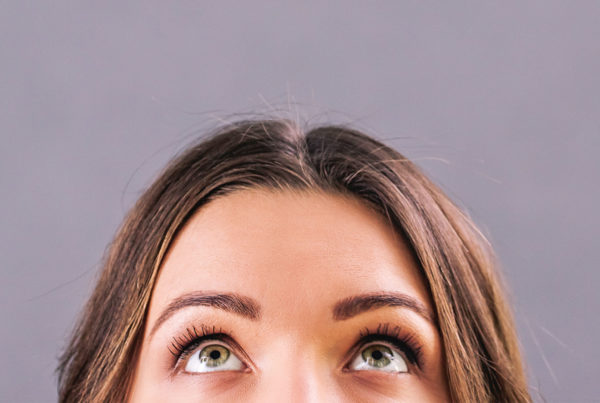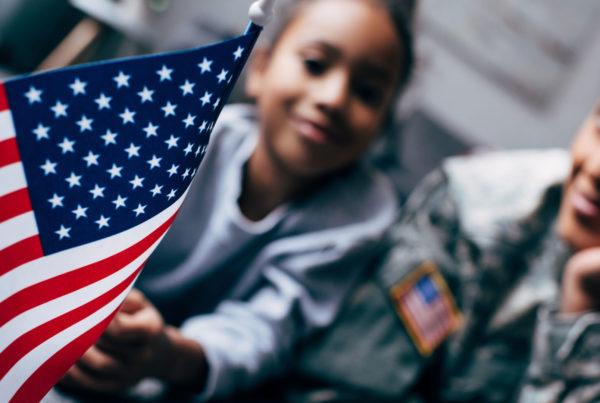COVID-19 has upended all of our lives in a million little ways. It has changed the way we work, learn, shop and connect with our community. Public health campaigns have been quick to provide concrete steps everyone can take to protect our physical health. Overnight, mask wearing and social distancing quickly became integrated into our daily lives, while “stay at home” orders were broadly issued. We know, however, that this pandemic doesn’t only pose a risk to our physical health but to our mental health as well. Children and adults alike have reported an increase in worry, confusion, isolation and grief since COVID-19 was first identified2/3. The impact that this has had on our mental health is becoming more and more evident as we enter into our seventh month of life with COVID.
There are any number of stressors associated with living through this pandemic. Parents of school-aged children became homeschool teachers overnight as their children came home from school in March not knowing that it was the last day they would see their teachers and friends for the rest of the school year. Workers transitioned to working from home with little warning, or worse yet had to navigate the unemployment system due to jobs closing down. Many had to continue their essential work services without the safety that quarantine offered. Worst of all, the friends and family of the more than 200,000 people who have lost their lives to COVID-19 are processing their loss without the ability to gather together large groups of loved ones to mourn1. In the face of all of this change, loss and increased physical risk, it is no wonder that the need for outpatient mental health care is higher than ever.
Just like everything else, outpatient therapy services have had to adapt to meet the needs of our clients without increasing their risk of contracting COVID-19. Meeting clients in person has been replaced by therapy sessions over the phone or video conferencing. At KidsPeace, our outpatient therapists have worked diligently to create a safe and welcoming experience, even if we cannot physically be in the room with the client. For their part, some clients have created routines to transition from their regular day to their therapy time – such as setting up a quiet space, getting a cup of hot tea and meditating before calling into their therapy session. Children and teens have transitioned to working on therapeutic art activities and worksheets from across a screen, still eager to show off their work to the camera. Families are sitting around the kitchen table for family therapy sessions with their therapist on speaker phone.
As expected, many of the goals identified by our clients are centered on living through COVID-19. Quarantine may increase personal safety but can also result in feelings of isolation, as going out with friends, visiting family or even playing at the park were put on an indefinite hold. This is particularly worrisome as we know that isolation can increase depressive symptoms and feelings of hopelessness.
We also know that students who may struggle with attention issues were hit doubly hard when they transitioned to remote learning. This has led not only to frustrated kids but also to frustrated parents trying to keep their children engaged in their school work. Some parents have even had to switch to working nights so they can stay home with their children during the day. This unsustainable schedule of course leaves little time for sleep and only adds to the amount of stress that they are under. Finally, feelings of anxiety have spiked as many people continue to worry about their physical health, particularly among those who fall into categories of higher risk of serious illness or death.
We know that some of the issues stemming from this crisis need more direct care than can be offered through a tele-health session. Because of this, KidsPeace has continued to offer in-person walk-in crisis assessments in all four outpatient offices in Pennsylvania. This service is available for both children and adults, and is completed along with COVID-19 screening, social distancing and mask wearing to ensure the safety of both the clients and the associates. (Residents of eastern PA can find out more about this program at www.kidspeace.org/outpatient-services.)
Here are some of the tips and advice that have been frequently given (and personally used!) by our outpatient therapists during the pandemic:
• Take deep breaths to regulate your breathing (especially when you are experiencing symptoms of anxiety or panic). This increases the oxygen to your brain and other organs and calms the sympathetic nervous system. This helps to decrease the physical symptoms of panic. Meditating and conscious breathing and are great daily practices improve your body’s ability to manage stress
• List 5 items that you can see, hear, smell, taste and touch. This grounding exercise helps press the figurative “pause button” on racing thoughts. Interrupting negative thoughts by focusing on something different gives you the opportunity to challenge your thought patterns and become better able to control them. Looking for more grounding techniques?
Try listing 100 farm animals, favorite movies or best hair bands.
• Turn off the screen. If the constant news cycle (related to COVID-19 or otherwise) is causing you stress, get off of the couch and away from your phone. Taking walks, painting, journaling or even cooking for your family help you focus on short term goals and accomplishments.
• Identify your support system. This could be in person or otherwise. Video conference with your friends, eat outside with family, or join online forums related to your interests. Make sure that you’re hearing the voices and seeing the faces of the people who care about you – even if it is over the phone.
• If you are already receiving mental health care – keep in contact with your provider! Make sure your next appointment is scheduled and your prescription (if you have one) is filled.
Outpatient therapy may look a bit different post-COVID-19, but the work of helping our clients meet their goals remains the same.
1. Tanoue, Y., Nomura, S., Yoneoka, D., Kawashima, T., Eguchi, A., Shi, S., Harada, N., & Miyata, H. (2020). Mental health of family, friends, and co-workers of COVID-19 patients in Japan. Psychiatry research, 291, 113067. https://doi.org/10.1016/j.psychres.2020.113067
2. Pfefferbaum B, North CS. Mental Health and the Covid-19 Pandemic. N Engl J Med. 2020 Aug 6;383(6):510-512. doi: 10.1056/NEJMp2008017. Epub 2020 Apr 13. PMID: 32283003.
3. Imran N, Zeshan M, Pervaiz Z. Mental health considerations for children & adolescents in COVID-19 Pandemic. Pak J Med Sci. 2020 May;36(COVID19-S4):S67-S72. doi: 10.12669/pjms.36.COVID19-S4.2759. PMID: 32582317; PMCID: PMC7306970.






